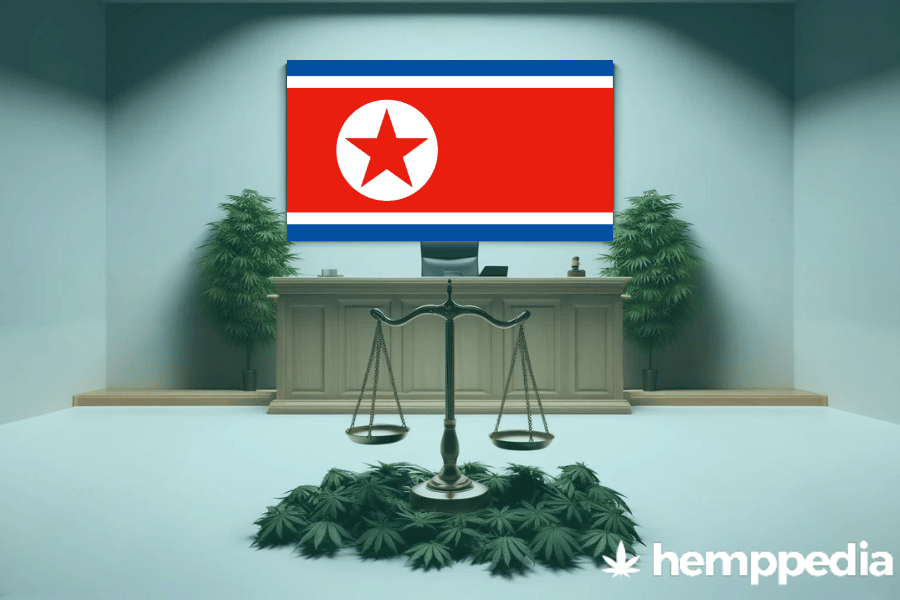TL;DR: Is CBD legal in North Korea?
North Korea is a notoriously isolated nation, with limited access to information about the country’s laws and regulations, including those related to Cannabis and cannabidiol (CBD) products. Based on the information that is publicly available, it can, however, be suggested that use of cannabis, which includes CBD, is considered legal within North Korea.
Unlike in many western countries where we often see a clear regulatory framework for CBD, such as distinguishing it from THC-containing products, North Korea appears to lack such clear-cut legal distinctions and restrictions. Considering this, the legal status of CBD remains difficult to ascertain definitively.
The following table outlines the basic information regarding CBD in North Korea:
| Usage | Possession Limits | Legal Distinction from THC |
|---|---|---|
| Legal | Unclear | No clear distinction |
Overview of CBD Legislation
Key Terms Defined
- CBD: Short for cannabidiol, it is a chemical compound from the Cannabis sativa plant. Unlike delta-9-tetrahydrocannabinol (THC), it does not cause any psychoactive effects.
- Hemp vs Marijuana: Both are varieties of the Cannabis sativa plant. Hemp contains high levels of CBD but less than 0.3% THC, whereas marijuana can contain around 5 to 20% THC.
- Full-spectrum vs isolate: Full-spectrum CBD contains all other cannabinoids and compounds found in the marijuana plant, including THC. CBD isolate is 99% pure CBD, with no other cannabinoids.
Legal Status
From the few reports available, it is suggested that cannabis is legal and commonly used in North Korea. This also implies that CBD likely shares the same legal status. With the caveat that obtaining accurate information from North Korea is exceptionally challenging, these claims come from defectors and visitors’ accounts.
Regulatory Bodies and Conditions
With limited information available about North Korea’s internal regulatory systems, it is unclear what bodies, if any, oversee cannabis or CBD regulation. There are also no known restrictions on THC content, types of products, or labeling requirements.
Historical Context
Historical information, including past legislation, about cannabis and CBD in North Korea is scarce. By all accounts, cannabis has been used traditionally for centuries, and usage is not stigmatized.
Possession, Use, Cultivation, and Sales
Due to a lack of available information, it is uncertain whether any restrictions on possession limits, sales locations, or age exist. The same applies to rules about importing or exporting CBD products, and cultivation of hemp for CBD production.
Details about the manufacturing process are also largely unknown, including safety standards, quality control, and certification processes, if any.
Enforcement and Penalties
With no known restrictions on usage, it’s unlikely there are penalties specifically for CBD. It should be noted that North Korea has strict laws and harsh penalties for breaking the law in general. Complete information, however, is not available.
There is no known precedent for medical usage of CBD, nor information about patient access to CBD for medical purposes.
Comparative Analysis
Compared to many western countries, North Korea takes a vastly different approach towards CBD. The current understanding is that North Korea doesn’t have any specific laws regulating CBD, which could imply an open attitude towards cannabis and related products.
Conclusion
Due to the limited publicly available information, understanding the legal framework around CBD in North Korea is challenging. Based on available information, it appears that use of cannabis, and by extension CBD, is mostly unrestricted. However, a clear picture of CBD’s legal situation in North Korea remains uncertain.
Future prospects for the legal status of CBD in North Korea remain uncertain as they are closely linked to the overall geopolitical situation of the country.





